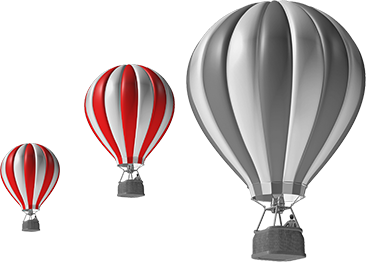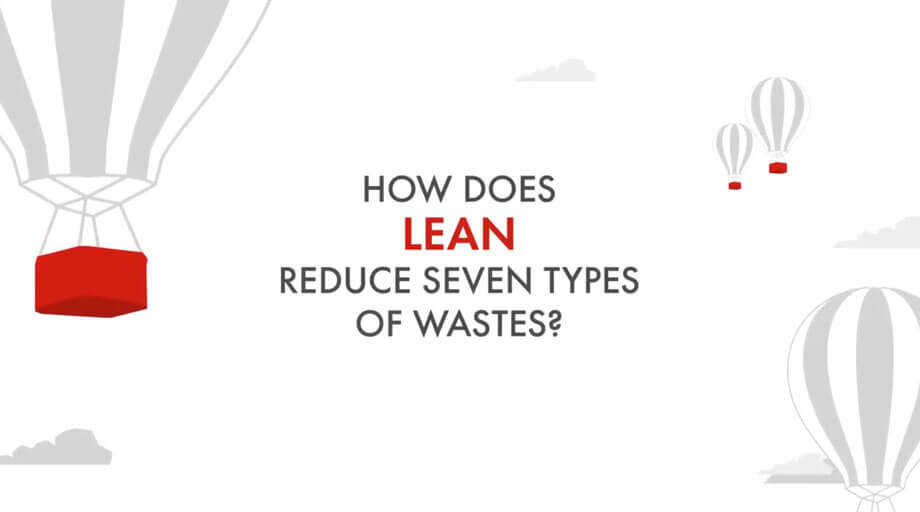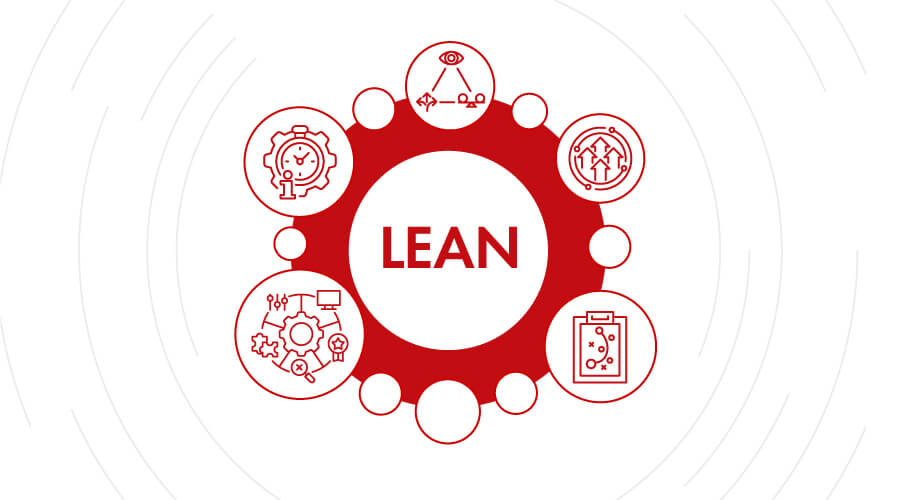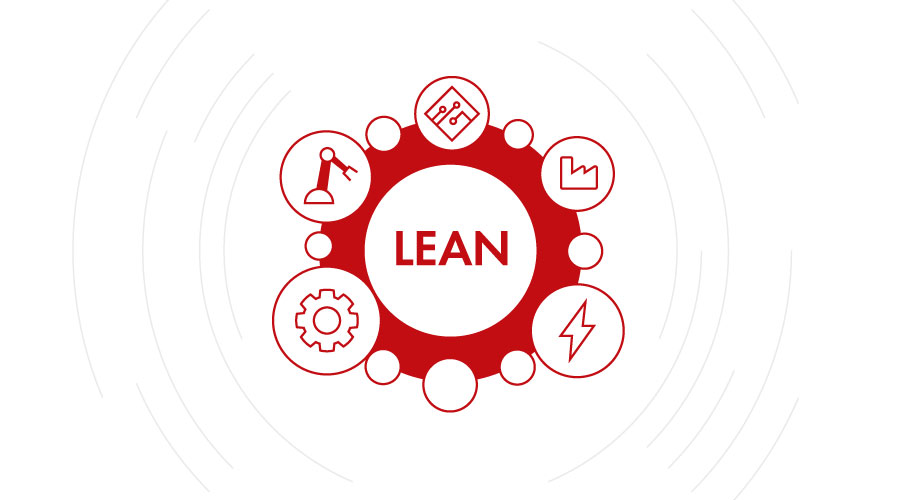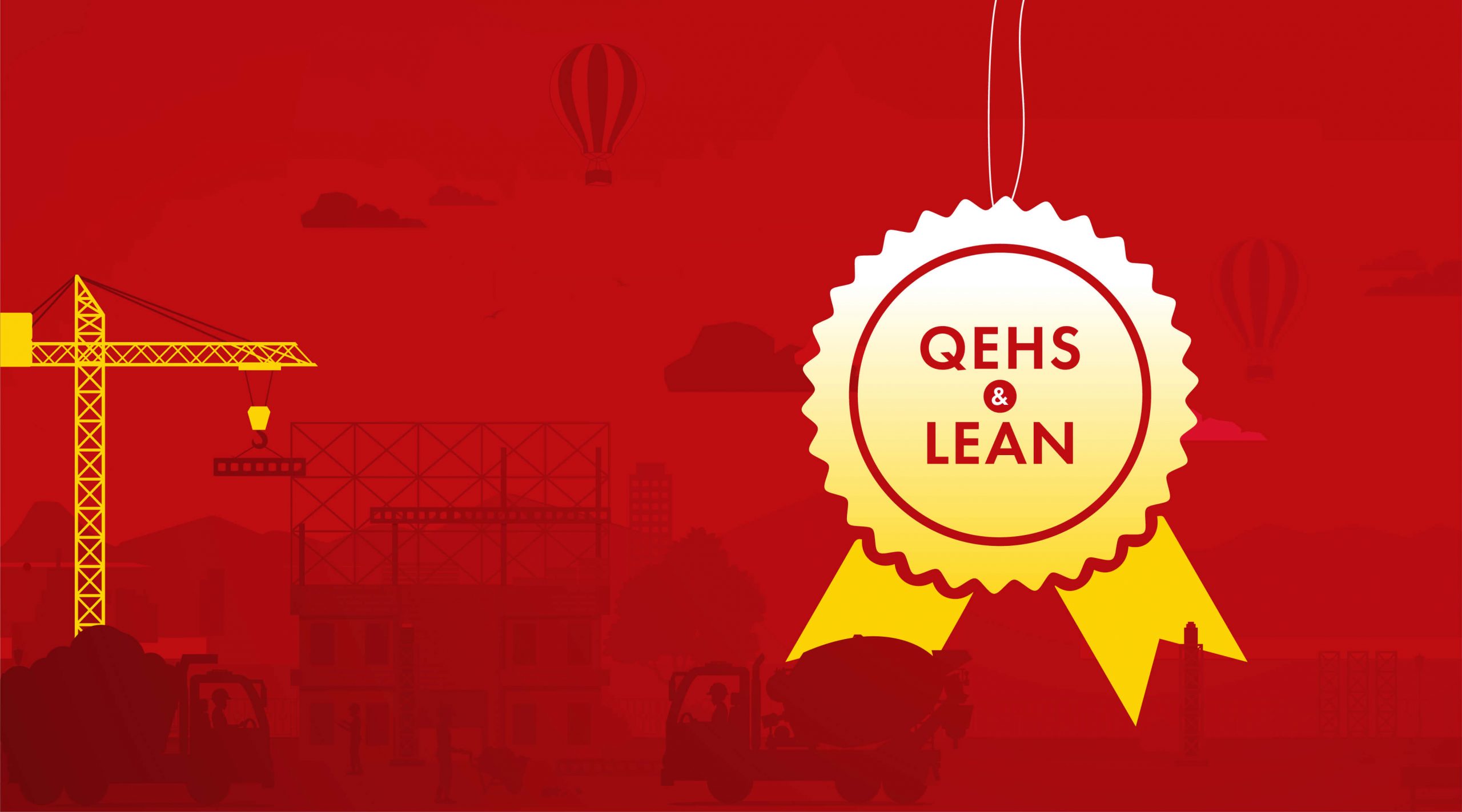

What is Lean Certification?
Lean manufacturing—also known as lean enterprise, or lean production, often simply, “Lean,”—is a production practice that considers the expenditure of resources for any goal other than the creation of value for the end customer to be wasteful, and thus a targets for minimizing waste.
A lean organisation, i.e., an organisation with Lean Manufacturing Certification, understands the customer value and constantly works towards enhancing its key processes to increase the value. It aims to provide a comprehensive value to consumer by following a perfect vale creation process with zero waste.
To have successful value creation chain, Lean manufacturing training is implemented that strategically changes the focus of management from optimizing separate technologies, assets, and vertical departments to optimizing the flow of products and services.

Toyota Production System
Lean manufacturing training encompasses a management philosophy derived mostly from the Toyota Production System (TPS) (hence the term Toyotism is also prevalent) and identified as “Lean” only in the 1990s.
TPS is renowned for its focus on reduction of the original Toyota seven wastes to improve overall customer value, but there are varying perspectives on how this is best achieved. The steady growth of Toyota, from a small company to the world’s largest automaker, has focused attention on how it has achieved this.
Lean manufacturing is a variation on the theme of efficiency based on optimizing flow. It is a modern-day solution increasing efficiency, decreasing waste, and using empirical methods to decide what matters, rather than uncritically accepting pre-existing ideas. As such, it is a chapter in the larger narrative that also includes such ideas as the folk wisdom of thrift, time and motion study, Taylorism, the Efficiency Movement, and Fordism. Lean Manufacturing certification invites numerous growth benefits for an organisation.


Type of Waste
Since elimination of waste is one of the major objectives of Lean, the ‘waste’ itself is defined in multiple facets covering every department and section of an organisation. The elimination of waste is the goal of lean, and Toyota defined three broad types of waste: muda, muri and mura.
Muri
Focuses on preparation and planning of the process, or what work can be avoided proactively by design.
Mura
Focuses on how the work design is implemented and the elimination of fluctuation at the scheduling or operations level, such as quality and volume
Muda
This is discovered after the process is in place and is dealt with reactively. It is seen through variation in output. It is the role of management to examine the muda.
The original seven mudas are:
Transport
Moving products that are not actually required to perform the processing
Inventory
All components, work in process, and finished product not being processed
Motion
People or equipment moving or walking more than is required to perform the processing
Waiting
Waiting for the next production step, interruptions of production during shift change
Overproduction
production ahead of demand
Over Processing
resulting from poor tool or product design creating activity
Defects
the effort involved in inspecting for and fixing defects
Lean Tools
Lean manufacturing training encompasses a set of ''tools'' that assist in the identification and steady elimination of waste. This relentless pursuit of reducing waste requires a continuous improvement, which lies in the heart of Lean Manufacturing. As waste is eliminated quality improves, the production time and cost are reduced excessively.
5s
Eliminates waste that results from a poorly organized work area (e.g. wasting time looking for a tool). Organize the work area:
- Sort (eliminate that which is not needed)
- Set In Order (organize remaining items)
- Shine (clean and inspect work area)
- Standardize (write standards for above)
- Sustain (regularly apply the standards)
Andon
Andon is a Japanese Term which in manufacturing refers to a status-display notion. It is a visual feedback system for the plant floor designed to alert operators and managers about the real-time issues so that the corrective measures can be taken immediately.
Much like a 'check-engine' light in the car, these visual issue display systems empowers operators to stop the production process and address the problems.
Continuous Flow
It is a method developed by Toyota where work-in-process smoothly flows through production with minimal (or no) buffers between steps of the manufacturing process.
It’s when a single product is moved across every step of the process instead of grouping work items into batches. This eliminates many forms of waste (e.g. inventory, waiting time, and transport).
Gemba (The Real Place)
Gemba is a Japenese term which roughly translates to 'the actual place'. In Lean, it is a philosophy that dictates to get out of offices and spend time on the plant floor - the place where the real action occurs. It can be a construction site, manufacturing unit, retail store, and dealer showroom etc. where service provider interacts with the consumer directly.
Gemba is a crucial part of lean management certification that aims to promote the understanding of the real-world manufacturing issues – by first-hand observation and by talking with plant floor employees.
Heijunka (Level Scheduling)
Heijunka aims to reduce the uneveess in the production process minimizes the chances or possibilities of overburden. It is a form of production scheduling that purposely manufactures in much smaller batches by appropriately sequencing product variants within the same process.
It is an important term in lean management training that literally translates to 'Levelling' an dcanhelp organisations to react to demands changes. It reduces lead times (since each product or variant is manufactured more frequently) and inventory (since batches are smaller).
Jidoka (Autonomation)
Jidoka deals with the quality of the product. Widely known as autonomation, it basically protects your company from delivering low quality or defected products.
In this, the design equipment is partially automated in the manufacturing process and this automatically stop when defects are detected. After Jidoka, workers can frequently monitor multiple stations (reducing labor costs) and many quality issues can be detected immediately thus improving quality big time.
Just-In-Time (JIT)
Just-In-Time Pull parts through production based on customer demand instead of pushing parts through production based on projected demand. Relies on many lean tools, such as Continuous Flow, Heijunka, Kanban, Standardized Work and Takt Time.
A part of lean management certification that is highly effective in reducing inventory levels. Improves cash flow and reduces space requirements.
Kaizen (Continuous Improvement)
Kaizen, one of the most popular tool in Lean Manufacturing Training, is a strategy where employees work together proactively to achieve regular, incremental improvements in the manufacturing process. It aims at improving productivity by enhancing the skills or operations everyday in some or other way.
Kaizen combines the collective talents of a company to create an engine for continually eliminating waste from manufacturing processes.
Kanban (Pull System)
In Lean management training, it is method of regulating the flow of goods both within the factory and with outside suppliers and customers. Based on automatic replenishment through signal cards that indicate when more goods are needed.
Kanban eliminates waste from inventory and overproduction. A lean management certification that includes Kanban shows the organisations’ capability to eliminate the need for physical inventories (instead relying on signal cards to indicate when more goods need to be ordered).
Poka-Yoke (Error Proofing)
Design error detection and prevention into production processes with the goal of achieving zero defects.
It is difficult (and expensive) to find all defects through inspection, and correcting defects typically gets significantly more expensive at each stage of production.Single-Minute Exchange of Dies (SMED)
SMED reduce setup (changeover) time to less than 10 minutes. Techniques include:
- Convert setup steps to be external (performed while the process is running)
- Simplify internal setup (e.g. replace bolts with knobs and levers)
- Eliminate non-essential operations
- Create Standardized Work instructions
Companies getting the SMED tool in their lean management certification showcases that the organisation can manufacture in smaller lots thus reduce inventory overload, and improve customer responsiveness.
Takt Time
Takt Time is the total amount of time required to produce a product in order to meet the customer demand. It focuses on aligning the pace of production with customer demand. Calculated as Planned Production Time / Customer Demand.
Provides a simple, consistent and intuitive method of pacing production. Further, it provides an efficiency goal for the plant floor (Actual Pieces / Target Pieces).
Total Productive Maintenance (TPM)
In a manufacturing process, most of the work is executed through machines, software, or technologies. In occasions of sudden breakdown can cause large consequences since the entire process is highly dependent on machines.
TPM is a holistic methodology in Lean management certification that aims to maintain the continuous proactive production process and integrity of work process to maximize the operational time of equipment. It creates a shared responsibility for equipment and boosts floor workers to take greater involvement in maintenance. In the right environment this can be very effective in improving productivity (increasing up time, reducing cycle times, and eliminating defects).
Value Stream Mapping
It is one of the most important tools of Lean. Value Stream Mapping is a tool used to visually map the flow of production. It is to create detailed visualisation of all the steps in your process. It shows complete flow of goods right from supplier to customer through the entire organisation and, in a way, highlights opportunities for improvement.
Exposes waste in the current processes and provides a roadmap for improvement through the future state. It basically shows the deliverance of value from the organisation to the customer.
Visual Factory
Visual indicators, displays and controls used throughout manufacturing plants to improve communication of information. It encompasses a set of charts, direction signage, information representation that enables quick dissemination of data.
It reduces the time and resource required to communicate the same information verbally and also makes the state and condition of manufacturing processes easily accessible and very clear – to everyone.
Lean Certification clients
Lean Training
Our Lean Manufacturing Consultants have experience in all vertical of business and are experts in providing lean manufacturing training with a solution to Total Quality Management that's cost-effective, efficient and reliable in the long-run.
Our Insightful Knowledge

Empower your business with 4C
- 4C Consulting is a high profile Lean Manufacturing Training Providing Company for continuously improving the quality of products and processes.
- Lean Manufacturing Consultants' Team of 4C works with the client organizations for a proper Lean tools implementation that includes to manage their risks and to improve the quality of products and processes continuity.
- Lean Manufacturing Training rendered by 4C Consulting helps organizations to attain excellence across all business operations.
- A proper Lean Manufacturing Certification adds credibility to organisatoins and helps businesses to implement Process Improvement standards.
